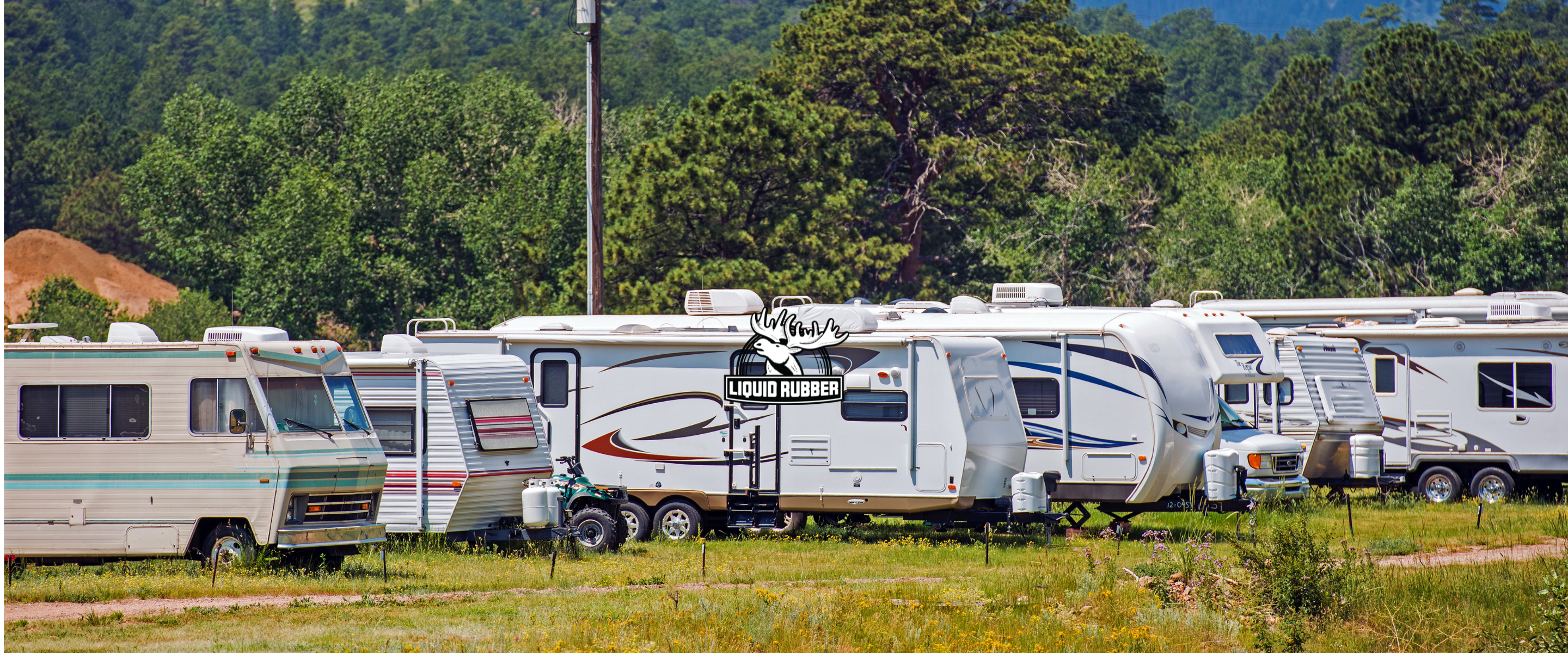If you spend time in an RV, you probably don’t have a heated garage to store your rig. You might live in a climate that doesn’t see much snow. Or you might just be too busy enjoying the good times to worry about bad weather. Regardless of your reasons for not worrying about wintering your RV, it will still need some tender loving care come the colder months.
With the right prep and preventive measures, you can ensure your RV is ready to handle cold temperatures and other adverse conditions. Here are some tips on how to winterize an RV so it’s ready for cooler temps when they arrive.

Discharging the Battery
One of the most overlooked winterizing techniques is discharging the battery. If you leave your battery connected to your rig during the winter, it will likely freeze. A frozen battery will cause permanent damage and could even damage other parts of your rig. If you need to leave your RV in an unheated area, be sure to disconnect the battery.
Flushing & Sanitizing the Fresh Water System
If you live in an area that requires you to use the city water system, flushing the fresh water system and sanitizing it will help prevent bacteria, mold, and other harmful substances from growing in your pipes. Be sure to use a bleach solution (1 part bleach, 9 parts water) to sanitize the system and flush any traces of the bleach out before you use the fresh water system again.
Seal Your RV’s Ventilation System
If you have a gas-powered furnace or air conditioner in your RV, you’ll need to seal up the ventilation system to prevent carbon monoxide from seeping into the interior of your rig. If you have a furnace, make sure it’s set to run on electricity instead of gas. This will seal the exhaust inside your RV. If you have an air conditioner, shut off the exhaust and install a cover over the intake.
Add Winterizing Chemicals
If you live in a region with severe winters, you may want to add a winterization chemical to your RV’s water system. This will prevent the water from freezing and bursting the pipes. To add a chemical to your water system, simply fill a bucket with water and drop in the chemical. Let the water sit overnight with the chemical in it. The next day, drain the water into your RV’s water system and flush it out several times before use.
Make Your RV Waterproof
As part of your RV winterization process, you’re going to also want to make sure that your RV is waterproofed before the colder weather sets in. Doing so will create an extra protective barrier against melting ice, sleet and snow, which can not only cause rust, but that can penetrate the exterior of your RV and cause extensive damage.
How to Winterize Your RV with Liquid Rubber
- Start by carefully inspecting your RV for any penetration points along the seams, vents, roofs, window seals and any openings. If there is a place where moisture can get into your RV, you’re going to want to add that to your RV winterization checklist.
- If you find any any cracks, you can use a simple #2 pencil to make a mark; don’t worry, graphite won’t harm your paint or your RV’s exterior, but it will help you identify these penetration points before you make the necessary repairs.
- To seal any found cracks and points of entry from moisture or pests, look to Liquid Rubber Seam Tape. Make sure to round the corners and use gentle pressure to apply this waterproofing seam tape. We’ve actually created a helpful guide that you can use for this, too: The DIY Guide on How to Repair Rubber Roof on RV.
- You can use this same method to seal any cracks that you find in your RV’s rubber roof, making sure that you also apply Liquid Rubber RV Roof Coating after you’ve completed the necessary winterization techniques.
Conclusion
While winterizing your RV may seem like a lot of extra work, it’s necessary to protect your investment. Preventive maintenance is critical when it comes to owning an RV, and winterizing is just another part of that process. Winterizing will ensure your RV is ready to handle cold temperatures and other adverse conditions. Taking these steps now will protect the investment you've made in your recreational vehicle for years to come.




